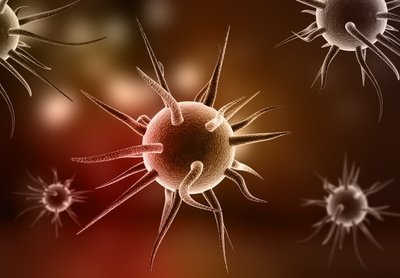Why Is Your Sperm Viability So Low?
There are many reasons for low sperm survival rate, among which infection of the reproductive system and varicocele are the main reasons. Li Xiaoping Clinic of Traditional Chinese Medicine will give you a specific explanation today.

1. Reproductive system infection leads to a low sperm survival rate
Infection of the reproductive system can lead to inflammation of the reproductive system, such as prostatitis, vesiculitis, epididymitis, and urethritis, which can cause variation of semen and make the pH, oxygen supply, nutrition, and metabolism of semen not conducive to sperm activity and survival. For example, the decrease of magnesium, zinc, citric acid, and fructose and the increase of pH in semen will affect the survival of sperm.
Due to the low sperm viability caused by these reproductive system diseases, patients can choose Diuretic and Anti-inflammatory Pill that has the effect of heat-clearing and detoxifying to eliminate inflammation to improve the survival rate of sperm.
2. Varicocele leads to a low sperm survival rate
Varicocele leads to partial testicle hypoxia due to venous blood return disorders. In addition, increased prostaglandin and 5-hydroxytryptamine in venous blood can lead to a reduced sperm survival rate. Increased scrotal temperature caused by varicocele can also make the sperm survival rate low.
3. The production of anti-sperm antibodies leads to a low sperm survival rate
Antisperm antibodies are secreted from the immune system when men experience "self-defense," which causes sperm to agglutinate or immobilize, making it difficult for sperm to survive and resulting in a low sperm survival rate.
4. Impaired testicular development leads to a low sperm survival rate
The pituitary gland secretes insufficient gonadotropin before puberty. The testicular biopsy shows that the curving seminiferous tubule is composed of undifferentiated primitive Sertoli cells and primitive spermatogenic cells and lacks interstitial cells. It is characterized by not fully mature or thinner spermatogenic epithelium of the testis due to damage, poor sperm quality, and weakened sperm motility.
In patients with testicular atrophy due to pituitary disease, excessive androgen or estrogen therapy after puberty, testicular biopsies showed thickening of the propria membrane, spermatogenic degeneration in the early stage, hardening of the fine seminiferous ducts in the late stage, and atrophy of interstitial cells.
The testicles are small and soft, with low semen volume and no sperm. All this leads to a low sperm survival rate.
5. Lack of trace elements leads to a low sperm survival rate
Zinc is an essential microelement for the human body, especially in testicular development, spermatogenesis, maintenance of spermatogenesis, and other aspects of paramount significance. Selenium plays a vital role in the human enzyme system and immune system. It is an essential component of glutathione peroxidase in spermatoplasma (this enzyme prevents the formation of lipid peroxidation in sperm membrane and enables sperm to have good form and function), and can neutralize the toxicity of cadmium and mercury to reproductive organs.
Deficiencies in both microelements can lead to a low sperm survival rate.
6. Mycoplasma infection leads to a low sperm survival rate
After mycoplasma infects sperm, it often attaches to the head and tail of the sperm to make the whole sperm covered with attachments of different sizes. It can cause weak sperm movement, directly affect sperm vitality and power, make sperm quality significantly reduced, make the number of dead sperm significantly increased, and result in a low sperm survival rate.
If you want to increase the survival rate of sperm, you can increase the level of sex hormones in the body by supplying exogenous foods, including high-quality protein. It is generally recommended to eat more red meat and eggs because these foods are high in cholesterol, which synthesizes male hormones. It can also promote spermatogenesis in the testes. For spermatogenesis, zinc, selenium, vitamin E, and other trace elements should be supplemented, effectively promoting spermatogenesis.
Meanwhile, men should also avoid staying up late, drinking alcohol, becoming sedentary, having colds, and frequently masturbating. At the same time, men should spend more time running, playing basketball, swimming, and doing other sports to help produce sperm.



